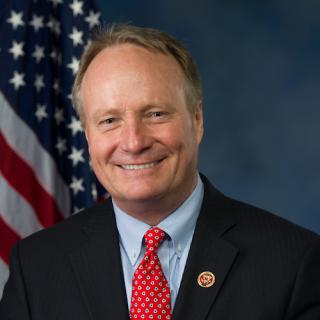Financial Services and General Government

Chairman Dave Joyce
2000 Rayburn House Office Building
(202) 225-7245
Majority | Minority |
| Dave Joyce – Chair | Steny Hoyer – Ranking Member |
| Steve Womack | Mark Pocan |
| Mark Amodei | Marie Gluesenkamp Perez |
| Ashley Hinson | Glenn Ivey |
| Michael Cloud | Sanford Bishop, Jr. |
| Chuck Edwards | |
| Mark Alford | |
| Nick LaLota – Vice Chair |
Recent Activity
Washington, D.C. – Today, the House Appropriations Committee met to consider the Fiscal Year 2026 Financial Services and General Government Appropriations Act. The measure was approved by the Committee with a vote of 35 to 28.
Thank you, Chairman Joyce. And thank you to Ranking Member Hoyer, Ranking Member of the Full Committee DeLauro, and all the members of the subcommittee. Today we continue our work on the Fiscal Year 2026 Financial Services and General Government appropriations bill. This legislation impacts every American, and the good governance our constituents expect. From our economy, and the branches of the United States government, including the Executive Office of the President and Federal Judiciary – to financial agencies – the scope of this bill is vast.
Thank you, Chairman Cole. I am pleased to present the Fiscal Year 2026 Financial Services and General Government Appropriations bill to the full Committee for consideration and approval.
I would like to thank Chairman Cole and Ranking Member DeLauro. And of course, I would like to thank Ranking Member Hoyer. I value his insights on and off this Subcommittee.
I’m proud of the bill we are marking up today. It reflects the hard work of the Subcommittee since March.
Washington, D.C. – Today, the House Appropriations Financial Services and General Government Subcommittee met to consider its Fiscal Year 2026 bill. The measure was approved by the Subcommittee.
Thank you, Chairman Joyce. And thank you to Ranking Member Hoyer, Ranking Member of the Full Committee DeLauro, and all the members of the subcommittee.
Today we continue our work on the FY 2026 Financial Services and General Government appropriations bill.
This legislation provides important resources for agencies and offices that impact every American, our economy, and the branches of the United States government. From the Executive Office of the President to the Federal Judiciary, the impact touches everything from national security to the rule of law.
I would like to thank Chairman Cole and Ranking Member DeLauro for being here today. And of course, I would like to thank Ranking Member Hoyer. I value his insights on and off this Subcommittee.
I’m proud of the product we are marking up today. This bill reflects the hard work of the Subcommittee over the last several months.
Counting our Member day back in early March, we’ve held nine hearings, on top of the additional briefings to inform our work.
Washington, D.C. – Today, the House Appropriations Committee released the Fiscal Year 2026 bill for the Financial Services and General Government Subcommittee. The bill will be considered in subcommittee tomorrow, July 21st at 5:30 p.m.
I would like to thank Director Vought for being here today. The Office of Management and Budget, or OMB, plays a central role in most of the decisions made in the Executive Branch, particularly as it relates to the federal budget.
